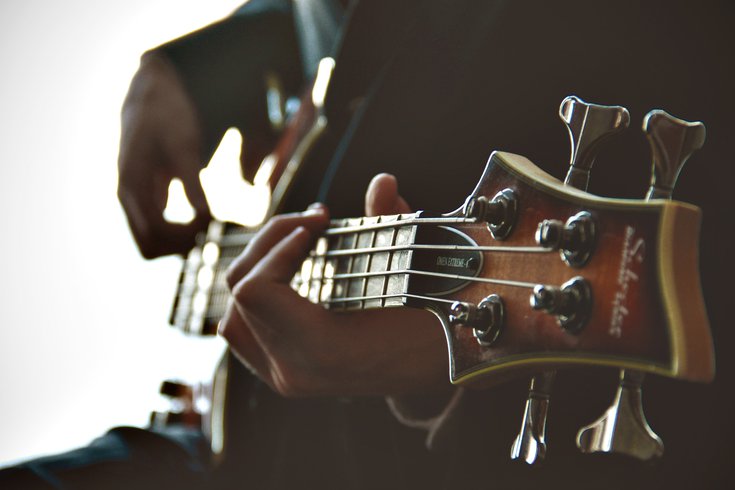
March 28, 2022
 Derek Truninger/Unsplash
Derek Truninger/Unsplash
Playing and listening to music can provide a clinical improvement in overall quality-of-life and well-being, a research analysis finds.
Music can provide significant improvements to well-being and quality of life – not unlike the mental health benefits provided by exercise and losing weight, according to an analysis published by the Journal of the American Medical Association.
Making and listening to music may present a "more attractive and effective" non-pharmaceutical alternative to other health interventions, researchers wrote. Their findings suggest music – either on its own or as a supplement to other forms of health care – can reliably improve overall mental health and quality of life.
"Many of us know from personal experience how profound a music intervention can be at times that include surgery, ill-health or mental health episodes," Kim Cunio, associate professor and convener of musicology at Australian National University, told The Guardian.
The use of music and art as health interventions has received more recognition in recent years, particularly after the World Health Organization found substantial evidence that music and art can help prevent ill health and play a role in managing and treating illnesses throughout life.
Previous research has shown music therapy can help reduce symptoms of depression and some menopause symptoms like hot flashes, sexual dysfunction and difficulty sleeping. It found music therapy could be used as a non-pharmaceutical treatment for the management of menopause symptoms.
"All of us are experts in music because we've spent thousands of hours listening to music, codifying it in our brain and responding to it," Cunio told the Guardian. "Is it any wonder that when we listen to music, something remarkable happens?"
In the JAMA analysis, researchers examined 26 studies on the effects of various music interventions, including singing, listening to music and music therapy. They found that singing, listening and playing music all had similar boost on well-being.
The researches noted that music is "reliably ranked as one of life's greatest pleasures," perhaps mitigating the uptake and adherence challenges associated with other non-pharmaceutical interventions, like exercise or weight loss. However, though the benefits of music are within range of those other interventions, they are at the low end.
"Future research is needed to clarify optimal music interventions and doses for use in specific clinical and public health scenarios," the researchers wrote.
In Philadelphia, Audrey Hausig runs a trauma-informed, music therapy practice that is designed to help people facing various mental health obstacles reach a sense of wholeness.
"There's a lot of therapeutic use of music," said Hausig, founder of Philadelphia Music Therapy. "That is wonderful and I encourage it, but it's different from music therapy, which is based on an assessment and a treatment plan, and evaluation."
Music therapists in Pennsylvania do not have official licensure, but they must be board certified, Hausig said. Although New Jersey and Maryland have passed legislation to license music therapists, advocates are working toward it in Pennsylvania.
In her practice, Hausig begins with a check-in for clients to determine how they're feeling and where they are in regard to their goals and understanding of themselves. For instance, when working with people experiencing substance abuse, Hausig begins by asking what their strengths are, what they're proud of, and what is important to them.
"I would ask about goals, and then present ways to reach that goal through music," Hausig said. "It might be writing a song about it. It might be listening to songs and discussing them. It might mean taking the instruments out. It could mean making beats together or singing. If they're adults, we would verbally process it and see what insights they got from it before moving on to another song."
Hausig noted the importance of the therapeutic relationship, saying it is foundational regardless of the type of therapy being practiced. In this way, music can strengthen the therapeutic relationship and provide a way for people to communicate with one another and know they are not alone.
For those using music or music therapy as a way to cope or overcome trauma, Hausig said it can provide them with the space to voice their stories without fear of reliving their trauma.
"It gives a buffer, and helps folks with their feelings," Hausig said. "Feeling it, understanding it, but not having to relive it can be really empowering."
Using music as a method of healing is not a fad. In fact, the earliest known instrument was made 40,000 years ago, signaling that music has been helping people communicate and understand their feelings for thousands of years. Even something as simple as listening to music that explores the feelings a person is experiencing can be empowering and provide listeners with the knowledge that they are not alone.